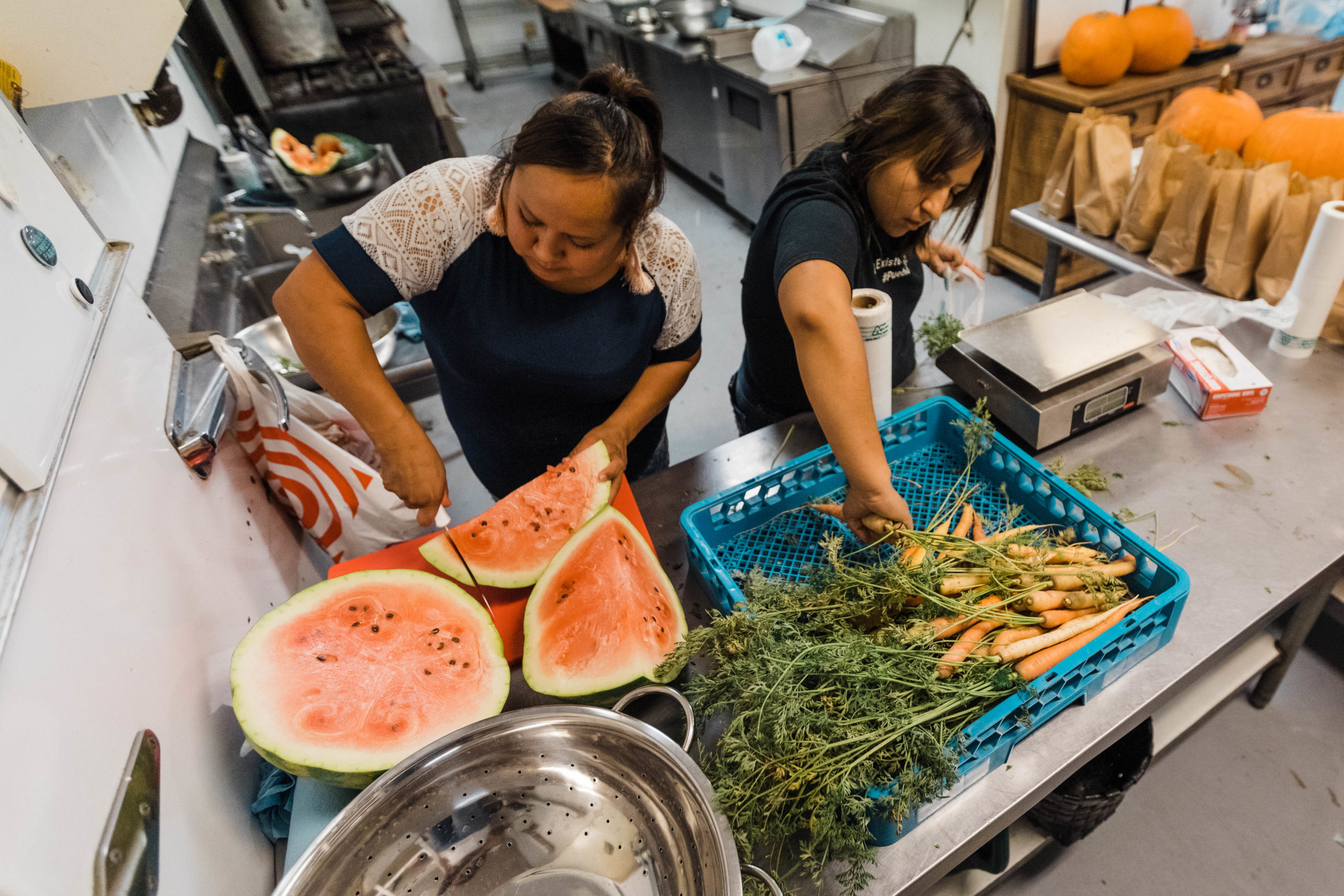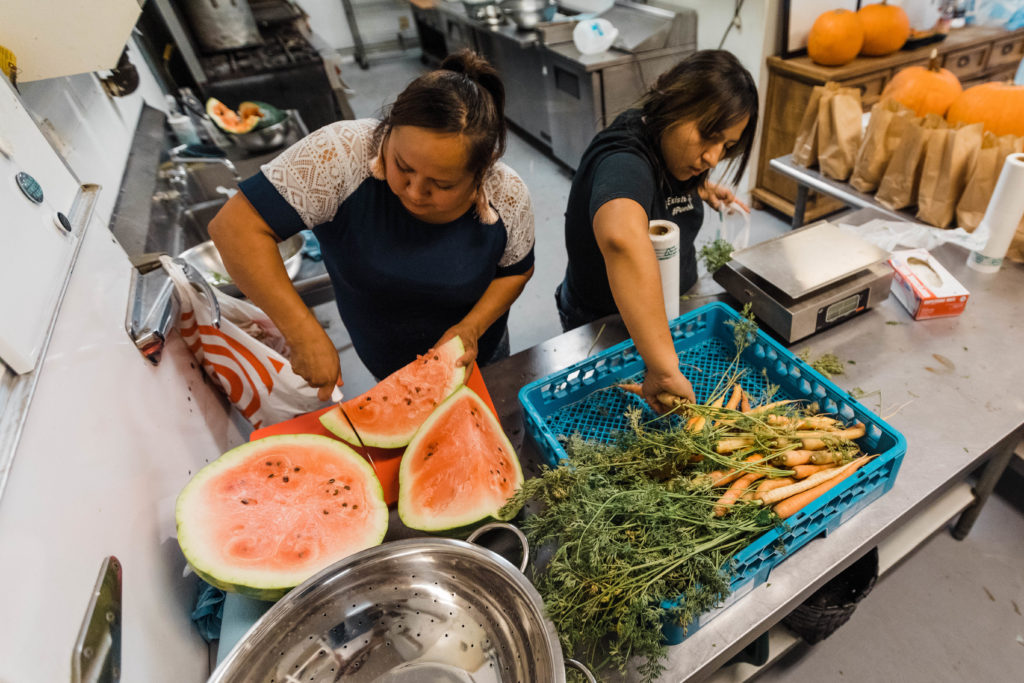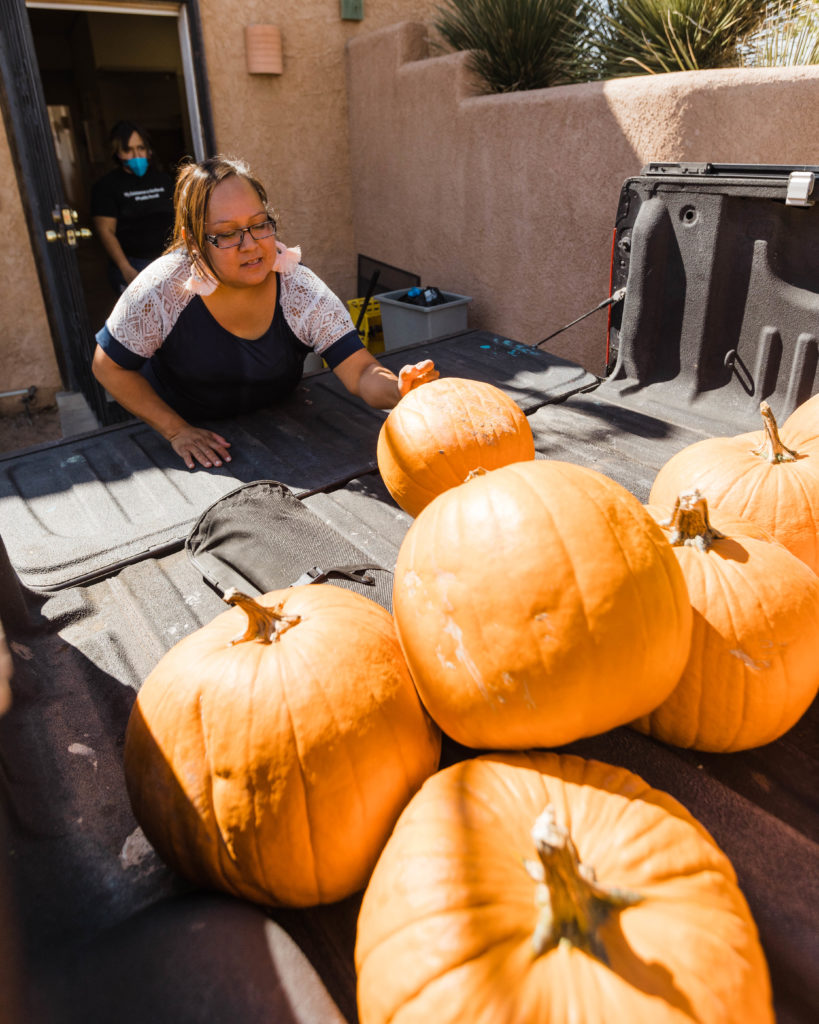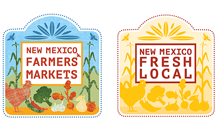
Seeded Sisters, an Indigenous, women-run farmer collective based in the Jemez Pueblo, served their community covering the areas of food, health, hygiene and more. With $15,000 grant from the New Mexico Farmers’ Marketing Association’s (NMFMA) COVID-19 Local Food Supply Chain Response Fund and the help of committed community partners, the collective provided direct assistance to Native American communities — including all 19 pueblos — through the direct delivery of over 200 boxes of locally sourced food and 200 hygiene and sanitation kits, and over 250 creative kits.
Eileen Shendo, Seeded Sisters founder, explained the collective delivered “fresh foods to boost the immune system, seeds to prevent further food insecurity, sanitary and disinfectant supplies for prevention, and creative kits out of consideration and care for holistic well-being during this time of huge uncertainty.” Shendo said Native communities were considered “hot spots,” as they were uniquely vulnerable to illness during the pandemic due to the prevalence of multi-generational housing, combined with the lack of access to basic resources — including fresh food and water.

Kateri Tsosie, left, and Alicia Toya prepare locally sourced watermelon and carrots for produce for boxes going to Santa Ana Pueblo (Photo by Elizabeth Evans).
Seeded Sisters was initially founded to provide social support and farmer training for Indigenous women and their families, with a focus on youth and the elderly. The group generated income for themselves and other Native farmers by aggregating produce to sell to Jemez Pueblo charter schools and into the Albuquerque Public School District — both of which are sources of nutrition for youth from low-income households. In 2020, Seeded Sisters moved into a new space in Bernalillo that is more easily accessible to all pueblos and provides plenty of room for the organization to grow into, including a commercial kitchen and brightly lit spaces to host workshops and community events.

Kateri Tsosie, front, and Alicia Toya, near the door, unload pumpkins from Wagner Farms for food boxes to deliver for at the Santa Ana Pueblo. (Photo by Elizabeth Evans).
When the pandemic hit and schools started shutting down, the collective quickly shifted gears. Seeded Sisters partners with the following five local farms and purchased their produce to provision the food boxes: Black Mesa Farms in the San Felipe Pueblo; Barelas, Organicos, and Zacatecas del Norte farms in Albuquerque’s South Valley; and Molino de la Isla Organics in Pecos. Pumpkins, onions, beets, spinach, carrots, turnips, quelites, mint, dill, mixed greens, okra, melons, kale, chard, squash, watermelon, and cantaloupe are some examples of the variety produce in the boxes. Additionally, every food delivery included seeds from nontraditional crops from the Seeded Sisters’ greenhouse or donated by Albuquerque’s Center of Southwest Culture.
“Take the initiative to offer your food and the partnerships you have, because if one farmer doesn’t have it, another will,” Shendo said sharing advice for other farmers. “Together, this allows all of us to thrive and the people to be fed.”
This story is part of a series featuring the many farmers, ranchers, nonprofit organizations, and collaborative groups who received grants via the NMFMA’s COVID-19 Local Food Supply Chain Response Fund. The Fund was designed to reduce economic hardship caused by market disruptions linked to the ongoing public health crisis and accelerate a sustained and equitable recovery among farmers and low-income communities. In total, $484,653.89 was distributed in 2020 to 100+ producers and groups. The tireless work and generous spirit of these individuals help solidify New Mexico’s local food system and ensure food access by those in need during an historic, global health crisis. Visit the NMFMA website to learn more and to contribute to the Fund.
By NMFMA Staff | December 2021


Great job people. It is refreshing to see people have the ability to change gears when Covid struck. Good luck with everything you are accomplishing.
Hi Joanne, thank you for reading and recognizing the resilience of Seeded Sisters and other farmers, especially with how they faced the added challenges of the pandemic.
What a beautiful project!! thank you NMFMA.
Thank you for reading, Cam!